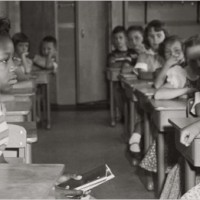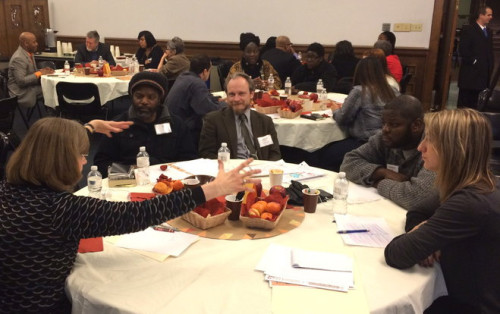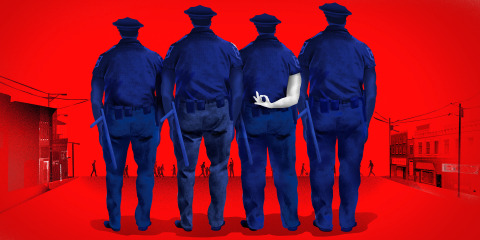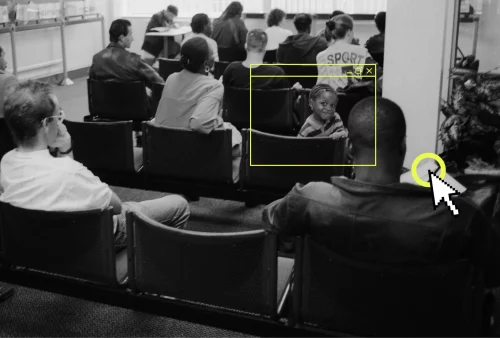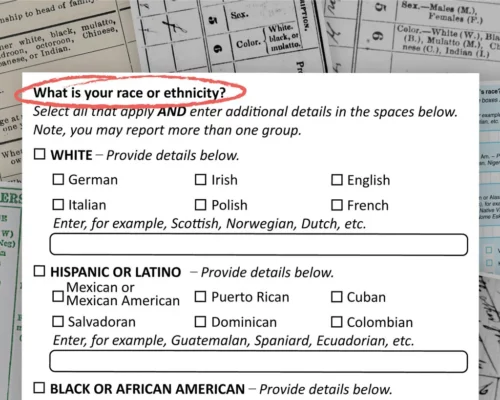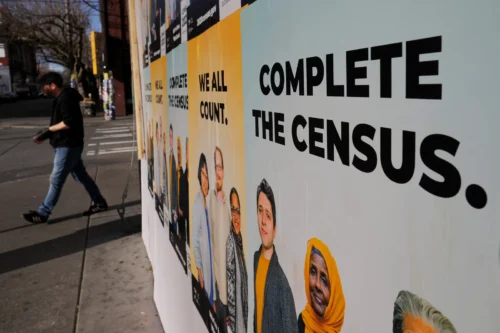Race
Explore Our Online Exhibits
Breaking News
Worldwide Community Events
Week 4
- Sun 28
- Mon 29
- Tue 30
- Wed 1
- Thu 2
- Fri 3
- Sat 4
- Sun 5
- Mon 6
- Tue 7
- Wed 8
- Thu 9
- Fri 10
- Sat 11
- Sun 12
- Mon 13
- Tue 14
- Wed 15
- Thu 16
- Fri 17
- Sat 18
- Sun 19
- Mon 20
- Tue 21
- Wed 22
- Thu 23
- Fri 24
- Sat 25
- Sun 26
- Mon 27
- Tue 28
- Wed 29
- Thu 30
- Fri 31
- Sat 1
-
28April

New Orleans Jazz & Heritage Festival
Fair Ground Race Course, New Orleans28April














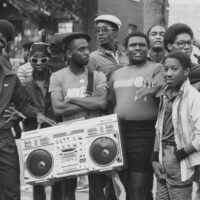
DYNAMIC RANGE: PHOTOGRAPHS BY BILL TENNESSEN
Haggerty Museum of Art28April

































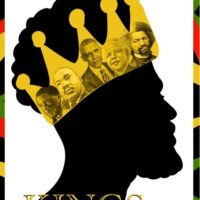 8:00 AM - 12:00 AM
8:00 AM - 12:00 AMDesere Mayo: History Through Art
Meadowridge Library28April







 7:00 PM - 12:00 AM
7:00 PM - 12:00 AMHOW I LEARNED WHAT I LEARNED
Broadway Playhouse Chicago -
29April









New Orleans Jazz & Heritage Festival
Fair Ground Race Course, New Orleans29April















DYNAMIC RANGE: PHOTOGRAPHS BY BILL TENNESSEN
Haggerty Museum of Art29April

































 All Day
All DayDesere Mayo: History Through Art
Meadowridge Library29April







 All Day
All DayHOW I LEARNED WHAT I LEARNED
Broadway Playhouse Chicago -
30April









New Orleans Jazz & Heritage Festival
Fair Ground Race Course, New Orleans30April















DYNAMIC RANGE: PHOTOGRAPHS BY BILL TENNESSEN
Haggerty Museum of Art30April

































 All Day
All DayDesere Mayo: History Through Art
Meadowridge Library30April







 All Day
All DayHOW I LEARNED WHAT I LEARNED
Broadway Playhouse Chicago -
01May









New Orleans Jazz & Heritage Festival
Fair Ground Race Course, New Orleans01May















DYNAMIC RANGE: PHOTOGRAPHS BY BILL TENNESSEN
Haggerty Museum of Art01May

































 All Day
All DayDesere Mayo: History Through Art
Meadowridge Library01May
 6:00 PM
6:00 PMHistory of Black Milwaukee Presented by John Gurda
ABHM in Milwaukee, WI01May







 All Day
All DayHOW I LEARNED WHAT I LEARNED
Broadway Playhouse Chicago -
02May









New Orleans Jazz & Heritage Festival
Fair Ground Race Course, New Orleans02May















DYNAMIC RANGE: PHOTOGRAPHS BY BILL TENNESSEN
Haggerty Museum of Art02May

































 All Day
All DayDesere Mayo: History Through Art
Meadowridge Library02May







 All Day
All DayHOW I LEARNED WHAT I LEARNED
Broadway Playhouse Chicago -
03May









New Orleans Jazz & Heritage Festival
Fair Ground Race Course, New Orleans03May















DYNAMIC RANGE: PHOTOGRAPHS BY BILL TENNESSEN
Haggerty Museum of Art03May

































 All Day
All DayDesere Mayo: History Through Art
Meadowridge Library03May
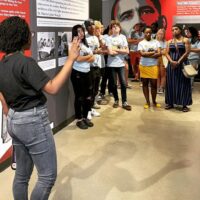
ABHM’s Jr Griot Program! Applications Due May 3rd
Virtual Event03May







 All Day
All DayHOW I LEARNED WHAT I LEARNED
Broadway Playhouse Chicago -
04May









New Orleans Jazz & Heritage Festival
Fair Ground Race Course, New Orleans04May















DYNAMIC RANGE: PHOTOGRAPHS BY BILL TENNESSEN
Haggerty Museum of Art04May

































 All Day
All DayDesere Mayo: History Through Art
Meadowridge Library04May
 9:00 AM - 2:00 PM
9:00 AM - 2:00 PMBlack Men in White Coats Youth Summit: Milwaukee
Golda Meir Upper Campus04May
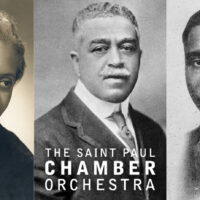 2:00 PM - 3:30 PM
2:00 PM - 3:30 PMCelebrating Black Composers Concert with the SPCO
Minnesota History Center04May







 All Day
All DayHOW I LEARNED WHAT I LEARNED
Broadway Playhouse Chicago -
05May









New Orleans Jazz & Heritage Festival
Fair Ground Race Course, New Orleans05May















DYNAMIC RANGE: PHOTOGRAPHS BY BILL TENNESSEN
Haggerty Museum of Art05May

































 All Day
All DayDesere Mayo: History Through Art
Meadowridge Library05May







 12:00 AM - 11:55 PM
12:00 AM - 11:55 PMHOW I LEARNED WHAT I LEARNED
Broadway Playhouse Chicago -
06May
















DYNAMIC RANGE: PHOTOGRAPHS BY BILL TENNESSEN
Haggerty Museum of Art06May

































 All Day
All DayDesere Mayo: History Through Art
Meadowridge Library -
07May

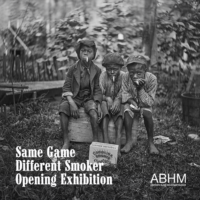 4:00 AM - 7:00 PM
4:00 AM - 7:00 PMSame Game Different Smoker Opening Exhibition
ABHM in Milwaukee, WI07May















DYNAMIC RANGE: PHOTOGRAPHS BY BILL TENNESSEN
Haggerty Museum of Art07May

































 All Day
All DayDesere Mayo: History Through Art
Meadowridge Library -
08May
















DYNAMIC RANGE: PHOTOGRAPHS BY BILL TENNESSEN
Haggerty Museum of Art08May

































 All Day
All DayDesere Mayo: History Through Art
Meadowridge Library -
09May
















DYNAMIC RANGE: PHOTOGRAPHS BY BILL TENNESSEN
Haggerty Museum of Art09May

































 All Day
All DayDesere Mayo: History Through Art
Meadowridge Library -
10May
















DYNAMIC RANGE: PHOTOGRAPHS BY BILL TENNESSEN
Haggerty Museum of Art10May

































 All Day
All DayDesere Mayo: History Through Art
Meadowridge Library -
11May
















DYNAMIC RANGE: PHOTOGRAPHS BY BILL TENNESSEN
Haggerty Museum of Art11May

































 All Day
All DayDesere Mayo: History Through Art
Meadowridge Library11May
 10:00 AM - 1:00 PM
10:00 AM - 1:00 PMBetty Brinn Children’s Museum Wonder Wagon
ABHM in Milwaukee, WI -
12May
















DYNAMIC RANGE: PHOTOGRAPHS BY BILL TENNESSEN
Haggerty Museum of Art12May

































 All Day
All DayDesere Mayo: History Through Art
Meadowridge Library -
13May


































 All Day
All DayDesere Mayo: History Through Art
Meadowridge Library -
14May


































 All Day
All DayDesere Mayo: History Through Art
Meadowridge Library -
15May


































 All Day
All DayDesere Mayo: History Through Art
Meadowridge Library -
16May


































 All Day
All DayDesere Mayo: History Through Art
Meadowridge Library -
17May


































 All Day
All DayDesere Mayo: History Through Art
Meadowridge Library -
18May


































 All Day
All DayDesere Mayo: History Through Art
Meadowridge Library -
19May


































 All Day
All DayDesere Mayo: History Through Art
Meadowridge Library -
20May


































 All Day
All DayDesere Mayo: History Through Art
Meadowridge Library20May
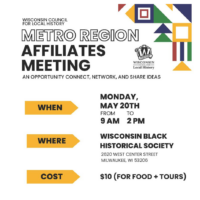 9:00 AM - 2:00 PM
9:00 AM - 2:00 PMWisconsin Historical Society’s Metropolitan Affiliates Meeting
Wisconsin Black Historical Society in MKE -
21May


































 All Day
All DayDesere Mayo: History Through Art
Meadowridge Library -
22May


































 All Day
All DayDesere Mayo: History Through Art
Meadowridge Library -
23May


































 All Day
All DayDesere Mayo: History Through Art
Meadowridge Library23May
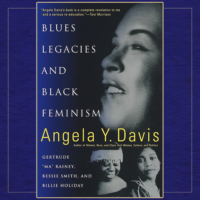 6:00 PM
6:00 PMABHM Book Club: Blues Legacies and Black Feminism by Angela Y Davis
Virtual Event -
24May


































 All Day
All DayDesere Mayo: History Through Art
Meadowridge Library -
25May


































 All Day
All DayDesere Mayo: History Through Art
Meadowridge Library25May

 8:00 AM - 12:00 AM
8:00 AM - 12:00 AMOHIO BLACK EXPO
Columbus, Ohio -
26May


































 All Day
All DayDesere Mayo: History Through Art
Meadowridge Library26May

 12:00 AM - 6:00 PM
12:00 AM - 6:00 PMOHIO BLACK EXPO
Columbus, Ohio -
27May


































 All Day
All DayDesere Mayo: History Through Art
Meadowridge Library -
28May


































 All Day
All DayDesere Mayo: History Through Art
Meadowridge Library -
29May


































 All Day
All DayDesere Mayo: History Through Art
Meadowridge Library -
30May


































 All Day
All DayDesere Mayo: History Through Art
Meadowridge Library -
31May


































 12:00 AM - 6:00 PM
12:00 AM - 6:00 PMDesere Mayo: History Through Art
Meadowridge Library -
01June

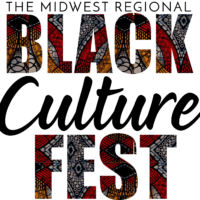 8:00 AM - 6:00 PM
8:00 AM - 6:00 PM2024 Midwest Regional Black Culture Fest
Washington Park
Share
The concept of race is important to America's Black Holocaust Museum because of its impact on the African diaspora. Race is a way of categorizing people by physical features–predominantly skin color. In much of the world, the white (caucasian) race is viewed more favorably than other races. The social construct has been used to justify kidnapping and enslaving African peoples and centuries of racism, including redlining, Jim Crow laws, anti-Black violence, and racial stereotypes about laziness, to give just a few examples.
While race-based arguments for inhumane treatment do not reflect biological reality, especially because someone can be of multiple races, members of the same race may share certain cultural and genetic characteristics. For example, the Black community is disproportionately impacted by Sickle Cell Disease. However, it is important to remember that commonalities between people of the same race do not indicate a genetic or biological component. Instead, racism contributes to environments in ways that can have serious and lasting impacts, especially on Black health and wealth. For example, redlining and lack of money led to many Black people living in areas with more pollution, and those in the medical field do not always provide the same service to Black patients, both of which can impact health.
Because of these inequalities, the Civil Rights Movement and other social, legal, and economic efforts for equality often specifically benefit Black people and other people of color. Race and its impact on the world have also been the topic of interdisciplinary study, and some artists specifically incorporate race--and racism--into their work. Furthermore, race can be a source of pride, sometimes in response to racism and negative stereotypes.
America’s Black Holocaust Museum hosted a frank discussion about race that attracted participants of many races.
Read MoreFor more than 400 years, the economic, social, and political behavior of Americans has been shaped by ideas about “races” and racial differences. Where did these powerful ideas come from – and are they true? How have your ideas about racial differences been affected?
Read MoreBy Riley Wilson and Shantrelle P. Lewis, Colorlines.com In this point/counterpoint about Nate Parker’s buzzy directorial debut, two Black independent filmmakers wrestle with the notion of seeing more chains, whips and nooses on the big screen. Riley Wilson: “The Birth of a Nation” Didn’t Change the Game …On the one hand, we have a film written, directed, and starring a Black man that tells the story of an enslaved African-American by the name of Nat Turner who led the most successful slave rebellion in U.S. history. On the other hand, we have a film about slavery-again… …(I)f you consider the rapturous reviews of “The Birth of a Nation” and the popularity of Black Lives Matter, a film studio would be silly not to invest in such a project. Black folks fighting for their rights—let alone their lives—is so in right now… …(T)o be quite honest, I cringe every time I see a period film about this topic gain more notoriety than films that speak to the current condition of Black lives… …(T)here are so many other stories to tell. It’s like the only way a film about the Black experience is rewarded is if it’s about the good-ole’ days of slavery… My qualm is not with the success that “The Birth of Nation” has had so far. It’s with the lackadaisical nature of an industry that allows so many great movies from writers and directors of color to fall through the cracks… Shantrelle P. Lewis: Nate Parker’s “The Birth of A Nation” is the Biggest Clapback Hollywood Has Ever Seen …(M)ost of our parents, us and our children have a limited view of history—especially any involving people of African descent. We’re taught that Black history begins with slave ships, cotton gins, beatings, lynchings and rape and ends with segregated buses, water hoses, police dogs and burning crosses. This view has been exacerbated by the predominant images of Black people today, those from the minstrel shows that are reality television programs and the viral videos showing police-sanctioned murders of Black people on social media… Beyond what the sale of Parker’s film signifies,”The Birth of a Nation” is a brilliant clapback against the first movie to use this title, D.W. Griffith’s 1915 Ku Klux Klan propaganda film… …Give me Nat Turner. Give me Toussaint. Give me Dessalines. Give me Nanny. Give me Zumbi. Give me Boukman. Give me Tula. Give me 1811. Give me the Saamaka. Give me Sojourner. Give me Denmark. Give me Harriet. Give me all of them on the big screen, any day, any year from now until forever. Read the full article here. Read more Breaking News here.
Read MoreOver a decade after the FBI first issued its warning, American police departments remain an attractive option for white supremacists seeking work.
Read MoreGeorgia Governor Brian Kemp signed a law that would prohibit teachers from discussing race and racism, leaving those teachers frustrated.
Read MoreJameson Green’s art sometimes makes viewers uncomfortable because it shines a light on racism–and that’s what makes it so important.
Read MoreA checkbox on a form might seem like an inconvenience, but it can lead to insights–if forms are adequately designed and data handled well.
Read MoreChanging how the U.S. Census asks about race could have an unexpected impact, even if some people think it is currently insufficient.
Read MoreFor now, Westpoint military academy will continue to consider race in its admissions process despite conservative protests.
Read MorePeople of Middle Eastern and North African descent are usually counted as “white” by the U.S. government, though most do not identify that way.
Read More- « Previous
- 1
- 2













